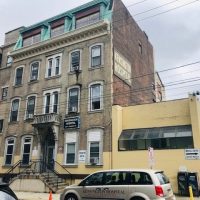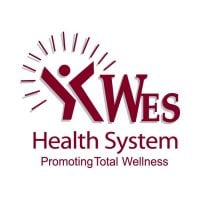Kensington Hospital
Drug Rehab Center in Philadelphia, Pennsylvania
Kensington Hospital is an accredited addiction treatment center in Philadelphia, Pennsylvania offering comprehensive services such as inpatient and outpatient care, aftercare support, and accepting most private insurance plans to help those suffering from drug or substance abuse disorders.
About This Philadelphia, PA Facility
Kensington Hospital, located in Philadelphia, Pennsylvania, has been serving the community for over 133 years as one of the top non-profit hospitals in the area. With a diverse staff and extensive experience in healthcare, Kensington Hospital is dedicated to providing comprehensive addiction treatment services.
- Specialized in treating opioid addiction, substance abuse, and alcoholism
- Offers a range of inpatient and outpatient treatment programs
- Provides detoxification and mental health disorder support
- Accredited by SAMHSA and JCAHO, ensuring high-quality care
Kensington Hospital holds accreditations from the Substance Abuse and Mental Health Services Administration (SAMHSA) and the Joint Commission on Accreditation of Healthcare Organizations (JCAHO), demonstrating their commitment to delivering exceptional care and adhering to industry standards.
The facility treats a wide range of addictions, including opioid addiction, substance abuse, drug addiction, and alcoholism. Their comprehensive approach includes various treatment methods, such as detoxification, inpatient and outpatient programs, and mental health support services.
Genders
Ages
Modality
Additional
Accreditations
SAMHSA

JCAHO
Conditions and Issues Treated
Substance abuse is the excessive use of any type of drug. This includes alcohol, medications and illegal drugs. Substance abuse is treated with a combination of physical and mental treatments. Kensington Hospital patients detox and follow up with therapies that target the underlying cause of the addiction.
Opioid addiction is one of Pennsylvania‘s most prominent forms of addiction. Drugs, including heroin, oxycontin, and fentanyl, are the most common. To relieve pain, or ease other ailments, they are professionally prescribed, but they are often abused because they and the feelings they give are addictive.
Addiction is treated by detoxifying the body, so the medications’ chemicals are no longer impacting the individual. Kensington Hospital offers therapies to correct behavior and target the root of the problem are supplemented during and throughout treatment.
Levels of Care Offered
This center offers a variety of custom treatment tailored to individual recovery. Currently available are Aftercare Support, Detox, Drug Rehab, Inpatient, Outpatient, with additional therapies available as listed below.
Detox treatment begins when the patient leaves their surroundings of family and friends, which is usually when they are most vulnerable. Being in a safe environment surrounded by medical professionals provides them with the safety net many of them need to get over their addiction. With kind and caring staff members, patients can feel relaxed, and they will need to start by admitting that they have a problem in order to get better.
If a person goes through detox treatment, they will understand their addiction better, and they won’t want to relapse and lose all the benefits of sobriety. They can see the effects of using drugs and how it makes them feel, which will make them want to quit their addiction.
Drug detox is vital to the recovery process, and it ensures that a patient will be in a safe environment during their withdrawal.
An inpatient is a person who stays in a hospital or rehab center during treatment. For alcohol- and drug-dependent individuals, inpatient rehabs provide individualized around-the-clock services. Inpatient treatment programs address a person’s unique physical, medical, and psychological needs. A team of experts assess the severity of the addiction and design a highly tailored program. typically, the length of stay in an inpatient facility in Philadelphia, PA is 30 days. Those with severe addiction may need to stay at the facility for 60 to 90 days.
Outpatient rehabilitation is a treatment that exists if a patient is not checking into Kensington Hospital long term. In addition to helping them recover, the patient attends regular therapy sessions and detox and participates in other therapies. However, this is all primarily done from home. As a follow-up to inpatient treatment, outpatient treatment is usually recommended.
After rehabilitation, it helps people return to their everyday lives. It may also be an alternative to inpatient care in some situations. If they cannot leave their jobs, children, or don’t have the money for inpatient care, people can choose this method. Inpatient therapy, however, is the best method and most suggested level of treatment offered by Kensington Hospital in recovering from addiction.
Kensington Hospital‘s Therapies & Programs
Substance abuse does a number on an individual’s relationship with other people, particularly in marriage. Spousal relationships bear the brunt of alcohol and drug dependence. Therefore, it becomes critical to submit the relationship to couples therapy to prevent straining it further. Most programs only zero in on the individual with substance addiction without factoring in the importance of the other half’s emotional support.
However, some facilities, like Kensington Hospital in Philadelphia, Pennsylvania, offer couples therapy options to manage intimate partnerships amid the recovery process. Other couples-focused treatment plans can provide the patient and their partner tools to get things back to normal, support each other, and the patient’s sobriety.Group Therapy is a type of counseling that occurs between a bunch of strangers. These groups are suitable for patients who are not confined in a treatment facility, but group sessions are also common in inpatient rehab programs. Group therapy is led by a trained individual at Kensington Hospital in Philadelphia, PA and consists of members from different stages of recovery.
The goal of group therapy sessions is to foster hope and a sense of belonging, share information, and learn coping mechanisms. It also helps to have people who can relate to what you’re going through. Good behaviors can also be contagious, and participants can learn from one another.
Unresolved trauma is often a key reason why many patients resorted to substance abuse. Trauma could be physical abuse, sexual abuse, war, natural disasters, divorce, accident, loss of a loved one, etc. If trauma is the primary cause of substance abuse, then both issues must be addressed.
Dialectical Behavior Therapy (DBT) is an improved version of Cognitive Behavioral Therapy (CBT) DBT is a treatment of choice for people being treated at Kensington Hospital whom are suffering from self-harming behaviors. Conditions such as obsessive-compulsive disorder and borderline personality disorder also benefit from DBT.
Cognitive Behavioral Therapy (CBT) is an approach and method in psychotherapy. Kensington Hospital asks people to investigate how their thoughts, including habitual, negative, and inaccurate ways of thinking affect behaviors. CBT is based on the idea that rigid, inflexible ways of thinking cause people to have a limited ability to cope with stress
Rational Emotional Behavior Therapy (REBT) is a method of specific counseling that replaces negative and self-limiting thoughts with positive and productive behaviors. Self-defeating thoughts and habits can limit your possible successes. Some examples of this are procrastination, unhealthy eating and angry outbursts. You may not be aware that some unhealthy behaviors and thoughts are sabotaging your potential accomplishments.
Some people refer to contingency management, or CM, as motivational incentives. This type of therapy is a reconditioning of the mind and responses of the body. The point of CM is to help the body understand the proper responses to behaviors should be, as well as the effects that come with both problematic and desired behaviors. The more positive choices a person makes, the more incentives they will receive, all managed with sobriety goals by Kensington Hospital in Philadelphia, PA.
Payment Options Accepted
For specific insurance or payment methods please contact us.
Is your insurance accepted?
Ask an expert, call (888) 674-0062
Additional Details
Specifics, location, and helpful extra information.
Philadelphia, Pennsylvania 19122 Phone Number215-426-8100 x6307 Meta DetailsUpdated April 15, 2024
Staff Verified
What else do people call Kensington Hospital?
People have occasionally also searched for “Kensington Hospital Methadone Maintenance Program in Pennsylvania”
Patient Reviews
There are no reviews yet. Be the first one to write one.
Philadelphia, Pennsylvania Addiction Information
Pennsylvania ranks 14th in the nation for drug-related deaths. More than 10% of all deaths in Pennsylvania have been related to drugs and alcohol. 30% of Pennsylvania youth reportedly drink alcohol monthly, with more than 20,000 teenagers having an alcohol problem. The rate of opioid misuse in Pennsylvania is double the national average.
Drug addiction and abuse are a big problem in Philadelphia, Pennsylvania. According to recent statistics, about 73,000 people in Philadelphia struggle with drug addiction. This means that about 7.5% of the population is addicted to drugs. Philadelphia also has one of the highest overdose rates in the country, with about four deaths per 100,000 people. It is important to choose a program that fits the individual's needs and addiction severity.
Treatment in Nearby Cities
- Willow Grove, PA (11.3 mi.)
- Mount Pocono, PA (79.8 mi.)
- Bala-Cynwyd, PA (5.5 mi.)
- Columbia, PA (72.7 mi.)
- Westfield, PA (183.6 mi.)
Centers near Kensington Hospital
The facility name, logo and brand are the property and registered trademarks of Kensington Hospital, and are being used for identification and informational purposes only. Use of these names, logos and brands shall not imply endorsement. RehabNow.org is not affiliated with or sponsored by Kensington Hospital.








